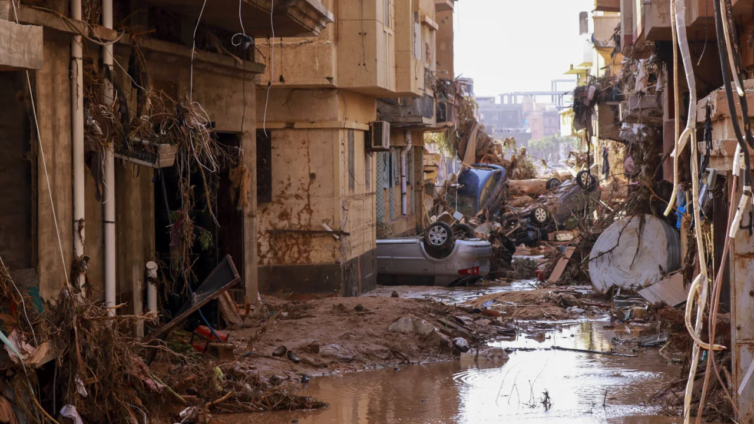The two rival governments in Libya are co-ordinating relief efforts for flood victims, the UN has said.
More than 5,300 people died after two dam bursts brought devastating floods to the eastern city of Derna.
At least 10,000 people are missing, and tens of thousands more have been displaced.
A UN official said that both the eastern and western governments had requested international aid and were liaising with each other.
"Both governments have reached out to the international community requesting services and help," Tauhid Pasha, of the International Organisation for Migration, told BBC Radio 4's the World Tonight programme.
"The Government of National Unity [western government] has extended its support to us and its request on behalf of the entire country and they are also co-ordinating with the government in the east," he said.
"The challenge now is the international community responding accordingly to the needs and the requests of the governments," he added.
Mr Pasha said support needed to be scaled up "very, very quickly and to do so we need money".
Since the fall of long-serving ruler Col Muammar Gaddafi in 2011, Libya has been split between the two rival governments and mired in conflict between numerous different militias.
Prime Minister Abdul Hamid Dbeibah leads the UN-backed Government of National Unity in Tripoli, Libya's western capital city.
Osama Hamad, the prime minister in the east, leads a rival administration known as the House of Representatives. However, many feel power there is really held by military strongman Gen Khalifa Haftar, who leads the Libyan National Army,
Gen Haftar received an Egyptian military delegation which came to offer aid and support after the disaster.
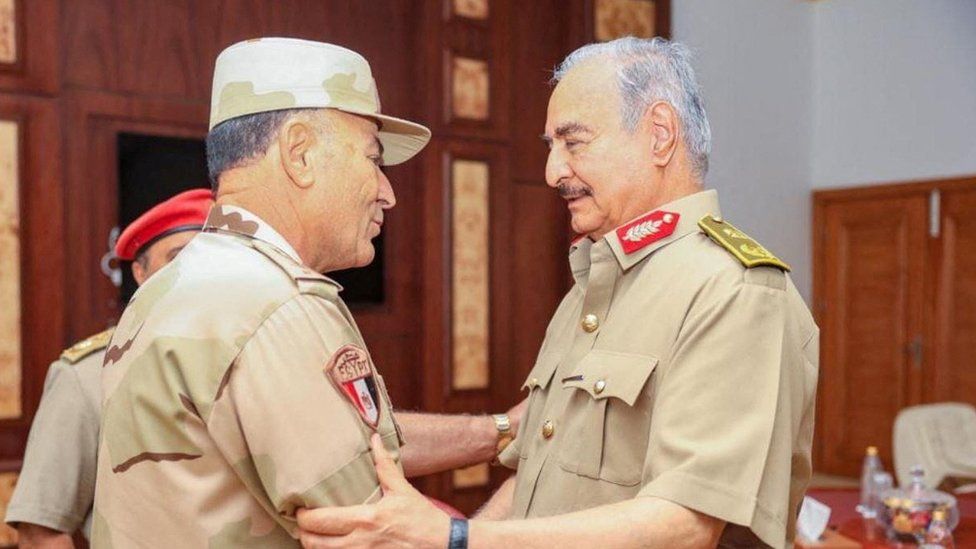
REUTERS
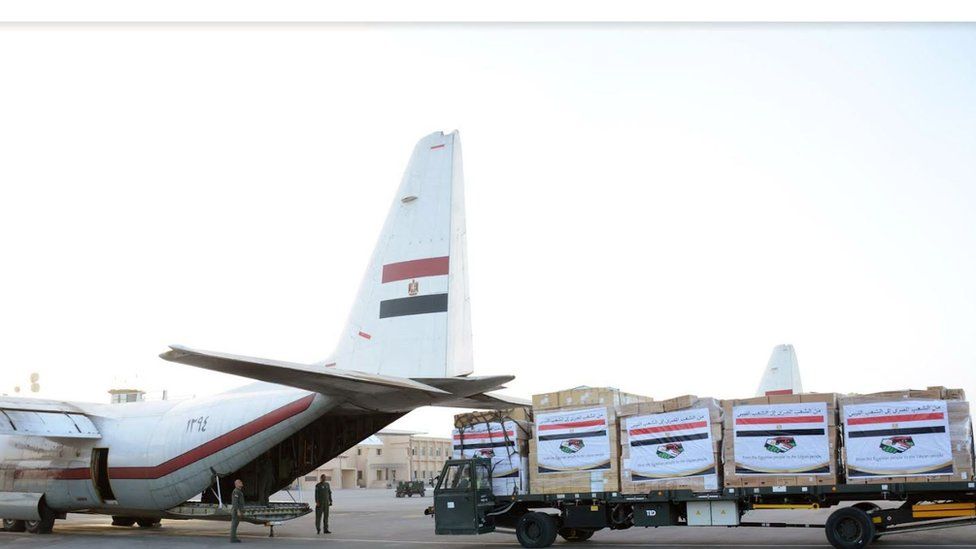
EPA
UN High Commissioner on Human Rights Volker Turk stressed that all political groups had to work together in the aftermath of the floods.
"This is a time for unity of purpose," he said.
"All those affected must receive support without regard for any affiliations. It is important that particular care is taken to ensure protection of groups in vulnerable situations who are rendered even more at risk in the aftermath of such a disaster."
Abdulkader Assad, political editor of the Libya Observer, said having an internationally recognised government in the west rivalled by another government in the east had hindered rescue efforts.
"We all know that Libya has been split between two governments for the last decade at least and we haven't actually felt the impact of this division because the presence of two governments was all about vying for power and taking control of the country and parts of the country," he said.
"But now that some of the cities are experiencing this natural disaster, this calamity, we could see that the lack of a unified centralised government is actually affecting the lives of people."
Libyan rescue teams searching for survivors in Derna are being supported on the ground by:
- Search and rescue teams from Egypt and Tunisia
- More than 160 personnel from Turkey
- Firefighters from Italy and Spain
Tommaso Della Longa, spokesman for the president of the International Federation of Red Cross and Red Crescent Societies, said time to find survivors was running out.
"We know that unfortunately this window will close in the next hours but hope is still there," he said.
Libyan Red Crescent teams in the field, he said, described the disaster as like "a bombardment and earthquake... happening at the same time".
"What they are telling us are really stories of entire areas of the city are not any more there, villages that are completely destroyed and thousands of families that at the moment really need everything," Mr Della Longa added.
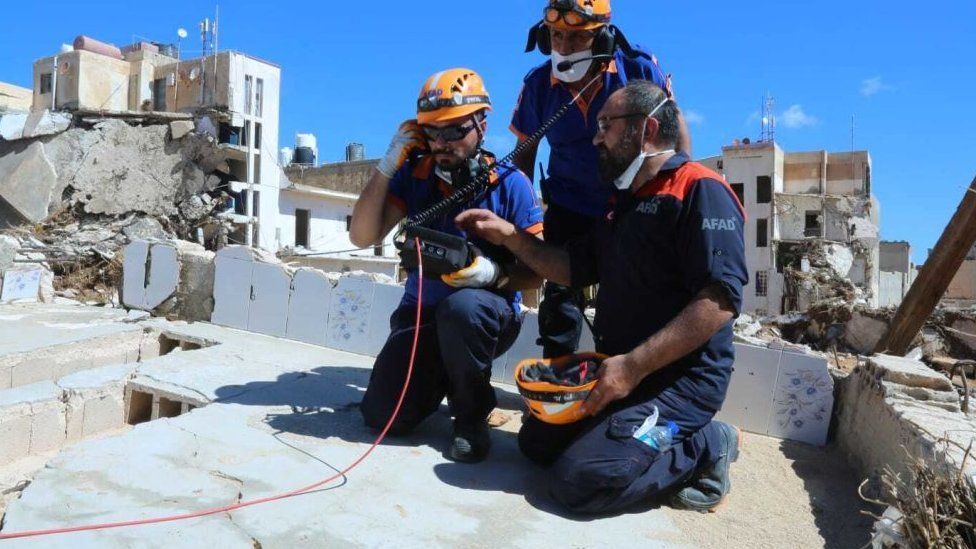
GETTY IMAGES
Usama Al Husadi, 52, has been searching for his wife and five children since the catastrophic flood hit.
"I went by foot searching for them... I went to all hospitals and schools but no luck," he told Reuters news agency as he wept with his head in his hands.
"We lost at least 50 members from my father's family, between missing and dead," he said.
The bodies of more than 80 Egyptian migrants killed in the flood were returned to Egypt, the country's emigration ministry said, and were buried in their respective towns.
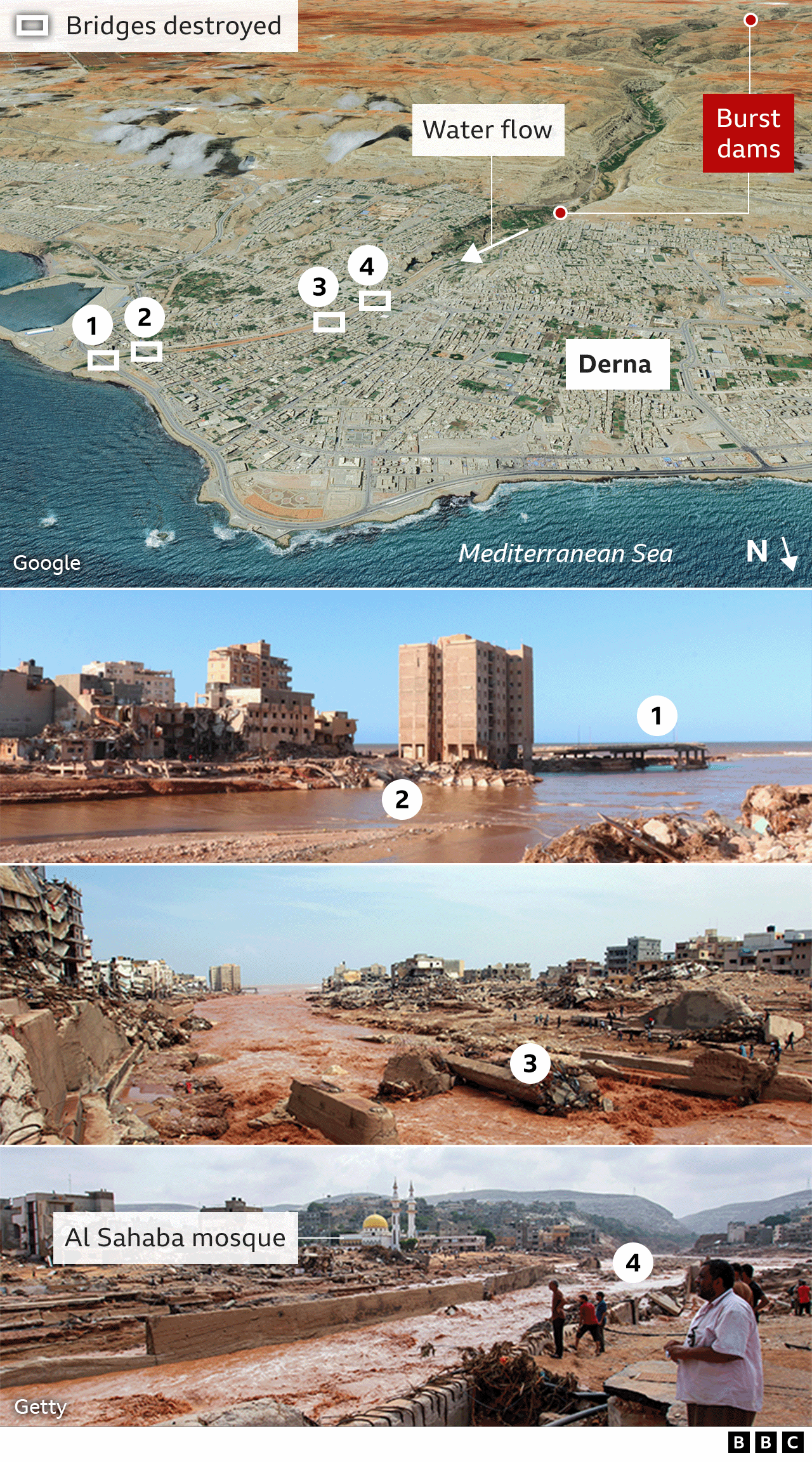
Latest Stories
-
I’ll step down as NDC National Organiser if Mahama asks me to – Opare Addo
3 hours -
‘No breach, no loss’ – Ghana Link confirms data safety after system interruption
4 hours -
Mahama appoints Dr Oliver-Kevor Ag. Director General of NiTA
5 hours -
GhIE holds 2025 Conference and AGM in Accra
5 hours -
Ghana’s household spending to hit GH¢129.7bn in 2025 – Fitch Solutions
5 hours -
Appointment Committee approves ministerial nominees by consensus
5 hours -
Lock in and improve Ghana’s health taxes: There should be no backing down on fight for public health
5 hours -
Sky trains are back in the news; but Accra still needs them
5 hours -
Lambussie MP donates medical supplies to Lambussie Health Directorate to combat meningitis
6 hours -
Enagage embassies over maltreatment of Visa applicants instead of a communiqué – Charles Owiredu to Ablakwa
6 hours -
Bond market: Secondary activities decline 44.85% to GH¢1.01bn
6 hours -
Dumelo backs gov’t’s Reset agenda, cites 8 years of struggles under NPP
6 hours -
Burkina Faso imposes export ban on grains and cereals
6 hours -
National Service Authority terminates volunteer appointments as part of restructuring
6 hours -
Youth empowered in Bongo District to combat violent extremism
6 hours

